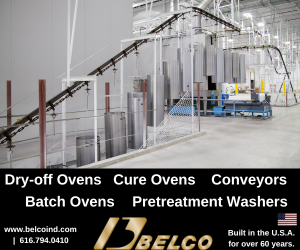Chromate Coatings on Bare Steel
Question: In one of your articles, you said that chromate conversion coatings don't work on steel.
Question:
In one of your articles, you said that chromate conversion coatings don't work on steel. That confuses me. Is it that it works on galvanized but not bare steel?
Also, when does one choose chromating vs phosphating for galvanized steel? Can you imagine an organic coating that would not need chromating or phosphating to achieve a strong and corrosion inhibiting coating? Thanks. T.G.
Answer:
For those that are interested, the original question and answer was published in my December 2001 column and generally concerned the applicability of chromates and phosphates.
Yes, you are correct that chromates work on galvanized steel but not uncoated steel. The chromates are used extensively with galvanized steel or other parts that are zinc plated. That provides an aesthetically acceptable appearance and minimizes the onset of white corrosion product that is typical with zinc coatings. Regarding your question about the necessity for chromating or phosphating, it is all related to the final performance expectations of the coating. It is possible to paint clean steel without further pretreatment, but generally you would not expect to achieve as good a performance as you would with some sort of pretreatment. If high performance is required, very good corrosion resistance and adhesion, a phosphate coating of some type would be recommended for bare steel. Generally, zinc phosphate will provide enhanced performance over iron phosphate, but it does have the drawback of being more expensive to operate and maintain.
Moderate performance may not require anything more than a clean, dry surface free of rust and oil. Here, paint selection will be more critical. A solvent-borne paint usually will stand a better chance at providing a good coating where a very light amount of residue remains from a rust inhibitor. Some waterborne paints have closed the gap in the recent years, however, and are better able to tolerate poor surface conditions than they were in the past.















